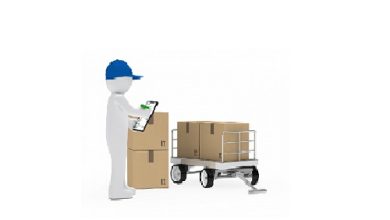5 Ways To Avoid Buying A Stolen Laptop
Used laptops are a great way to save money and enjoy high-tech features at the same time.

Buying a used laptop can be an excellent way to save money, but you must be cautious when picking what to buy. How can you buy an old laptop safely, other than the obvious advice to avoid buying one from someone selling it out of the trunk of their car in a parking lot? What qualities should a decent used laptop for sale have, and what are some red flags that the price is too good to be true?
How To Purchase A Secondhand Laptop?
Searching for refurbished laptops directly from the manufacturer on various online platforms is one of the greatest ways to locate an excellent, “new-to-you” laptop. These machines have returned to the business and have been examined, cleaned, and refreshed; they frequently include a guarantee. Large-format electronics retailers often have open boxes, floor models, or returns at discount rates. You’re getting a wonderful deal on essentially brand-new devices.
Go to a neighborhood computer shop you know and trust and ask whether they offer used devices if you can’t find anything reconditioned there that you like. Local shops frequently accept trade-ins and refurbish them similar to refurbished equipment. A local business might also be more likely to assist you if something goes wrong, even if a used machine does not have the same manufacturer warranty as a refurbished unit.
There are discounts to be obtained if you buy a used machine from an individual seller rather than a retailer if you cannot discover a good bargain from a retailer. However, it would be perfect if you exercise caution, and buying a stolen laptop could get you into trouble you don’t need.
What To Examine When Dealing With A Seller
-
How does the laptop look?
The look of the device is the first thing to consider. Does it appear damaged? Are there dents on the case that appear to result from anything on the laptop? You are familiar with the design of a used laptop; little signs of wear and tear are acceptable. You’re searching for unusual damage that the seller is unable to explain. There would be damage that doesn’t seem right if a security cable was attached and pried (or cut) off. It indicates that you ought to back out of the deal of a used laptop for sale.
Another thing to check for is any bulging areas of the casing. A false battery will have a bulging case. If the vendor accepts this, you’ll need to replace the battery, so be prepared. A bulging battery poses a fire risk and may result in trackpad and keyboard issues. Avoid this unless you are confident in your abilities and ready to pay more to replace the battery.
-
Does it have the required tools?
The power adapter was left behind as if its a stolen laptop. A major red flag could be if it didn’t have the power cable and couldn’t explain why. Frequently, while selling computers, people may include a travel bag or an additional mouse. It could be either a good or negative omen. The accessories would also be available for sale if it’s the stolen bag from a car. Inquire a little about the purpose of including these things. Look for any identification or other clues that the bag wasn’t originally theirs in the bag.
Do not be alarmed if the seller does not own the original box or installation disks (not many machines ship with install disks anymore). The box is probably long gone if the laptop is older than a few years. You want to know whether the device has all the accessories you would anticipate a long-time owner having.
-
Does it function?
Some of us have no difficulty spending money on a broken laptop that we think we can repair into something useful. However, there is a distinction between purchasing a dead laptop, which displays the “blue screen of death” or fails to boot into the operating system correctly, and buying a laptop that the seller won’t allow you to power on before you purchase it. It would be perfect if you powered on a secondhand laptop to ensure that everything restores to factory settings before purchasing it from someone. There shouldn’t be any private documents on the desktop.
You should purchase a system with new software, even if it is secondhand.
Verify that the speakers, WiFi, and trackpad are all in good working order. Additionally, start a text editor on the computer and start typing. Work all the keys? Is the keyboard sluggish to you? It’s not worth the risk if the merchant won’t allow you to test out these essential features.
-
How do you find the seller?
Does the vendor appear anxious? Only in a parking lot will they meet you; exactly where? Do they accept electronic transfers or solely cash? Can you obtain a receipt bearing their name and contact details (which correspond to those on their ID)? Can the seller give you more details on the laptop? If not, will they at least allow you to switch it on and check the specs?
You should be wary if the seller is giving you a sweetheart bargain on a laptop that is pricey. You want to earn a fair price for the machine even if you need to sell it soon. It’s one thing to work out a bargain for a child who needs a laptop for school, but selling a $3000 laptop for $500 seems shady.
Check the seller’s reputation if you spotted the laptop on Facebook Marketplace, Kajiji, or Craigslist. Also, see whether they appear to sell many items, such as bicycles, laptops, or phones. You have the opportunity to be cautious now, trust your gut when something doesn’t feel right, and move on. Other laptops will always be available for purchase.
-
Be mindful of sales made exclusively online
Online shopping has become so commonplace. And there is no issue with purchasing a new machine from a trustworthy manufacturer or internet retailer. What becomes somewhat dubious is purchasing old equipment online. Confirming you received the machine you saw in the photographs or even if someone video chatted with you is far more difficult. The warning above flags are difficult to spot, and if you don’t receive what you paid for, there is nothing you can do.
Exercise extreme caution if you’re purchasing a laptop without seeing it first. There are a lot safer alternatives accessible.
Conclusion – A Stolen Laptop’s After Effects
Many computers, even those covered by Absolute, have tracking software integrated into the firmware, so someone may easily go hunting for it if one steals. The last thing you require is the authorities showing up at your home to recover a stolen laptop, leaving you without a computer, out of pocket in cash, and possibly under investigation for possessing stolen stuff.
It won’t be enjoyable to describe your laptop purchase to the cops. You’ll also ask many questions regarding who you bought it from when you did and why you failed to detect any red flags that the transaction might not be legal. Buy refurbished laptops from manufacturers or trustworthy sellers.




